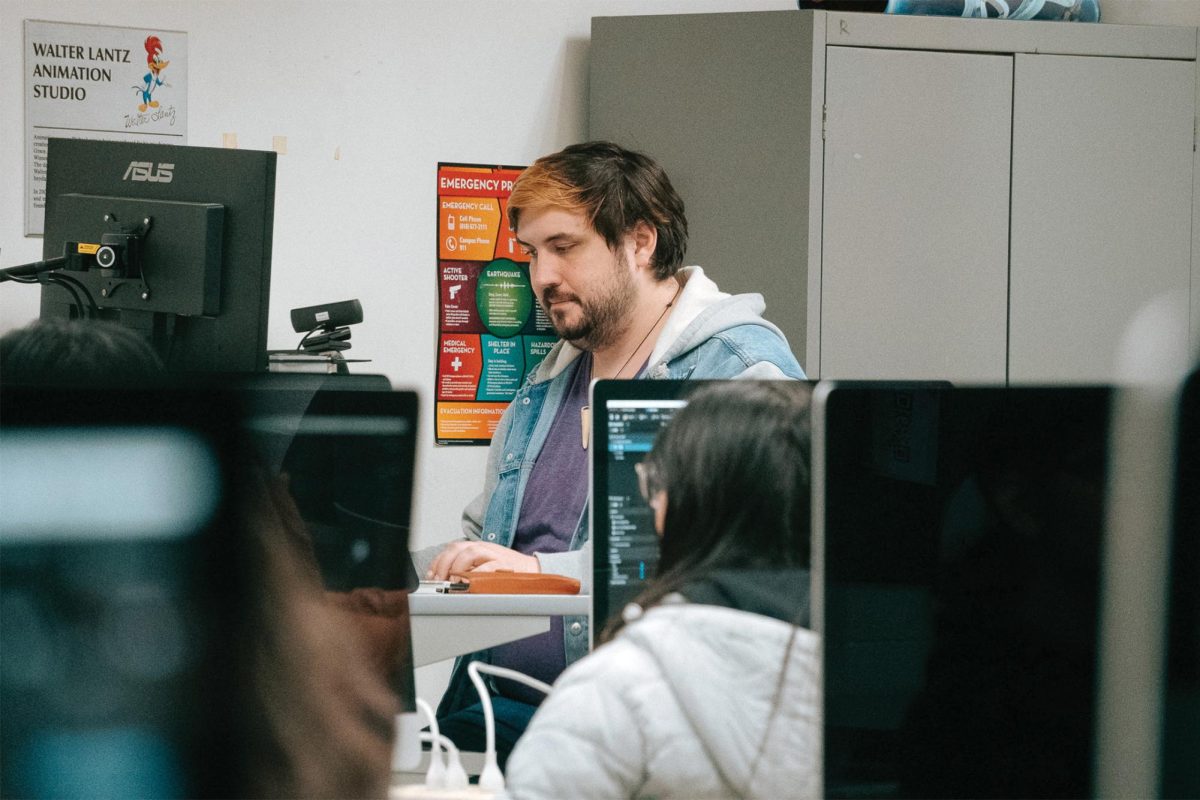Gaming as we know it has evolved in the past few decades.
It has become more than just a way for college students to pass time and de-stress amid assignments. From primitive light-based graphics games, such as Tennis for Two, to the upcoming blockbuster sandbox game Grand Theft Auto VI, a once-niche hobby has turned into a major sect of media. Titles vary from a deep, story-rich game such as God of War Ragnarök to forming squads with friends for team death matches in Call of Duty: Modern Warfare 3. There are also low-stress and relaxing games, such as Animal Crossing, where players collect resources and decorate their island.
There is a game for almost anyone. The question is how this type of interactive media affects the minds of young players.
Through gaming, many young players experience a sense of community with multiplayer modes in titles such as Destiny 2 and World of Warcraft. Multiplayer games foster a sense of community with how players can form groups, sometimes called clans, to do missions together, talk and effectively forge bonds that can only be rivaled with those born from blood. People can meet and befriend others from across the world or even deepen bonds with those that they already know in real life. Either way, players are all connected, which can lessen anxiety around talking to strangers by exposing them to different personalities.
Dr. Corinn Cross, a member of the American Academy of Pediatrics Council of Communications and Media, shared how connected children are online with games.
“It helps to keep them connected and allow a social outlet,” Cross said, regarding young gamers. “A lot of games have a creative aspect that can be really interesting and great to some kids.”
This connection, though, has caused strife between people. There is a stereotype that gamers scream obscenities or racial and homophobic slurs into their microphones in fits of rage or to get a rise out of their opponents and peers.
Some video games block voice chats entirely to try to quell the waves of toxicity and foster a more inclusive environment. Sadly, this also extends to clans. A clan is an organized group of players in a multiplayer game that bond together to achieve various goals in-game. Some of them, while kind and approachable, can foster elitism and cliques with high score acceptance requirements and troll-like behavior, which is equivalent to cyberbullying.
Aaron Daly, a professor of game animation at California State University, Northridge, founder of the game development club on campus and a game developer, shared his thoughts on toxic behavior in gaming.
“I think a lot of people can say, ‘Well, I’m going to get away with this because in an hour, they’re gone from my life forever,’” Daly said.
Hypercompetitive games like League of Legends intensify the multiplayer element, which has caused the esports community to grow rapidly over the years. Esports are competitive gaming taken to a professional degree where people form teams, get drafted and even play in worldwide tournaments with cash prizes up to millions of dollars.
“People use it as a way to destress, escape from reality … in the last five years or so, it has helped people to be able to make a living,” Daly said.
Esports, just like other sports, bring out emotions in people, with some players being belligerent toward their fellow competitors. In 2018, during a Madden NFL 19 tournament, a man who recently lost the tournament returned with an AR-15 and killed two people before turning the weapon on himself. While the video game itself was not at fault, the hypercompetitive environment can create an atmosphere of anger and strife among many players, especially when money is involved.
“I think that not everyone, obviously, who plays a first-person shooter game or is exposed to excessive violence in video games is going to go and become a school shooter,” Daly said.
Gaming is a serious business to some. Livestreams are a direct result of gaming’s communal nature. People are able to watch their favorite player or person livestream games, which highlight their skills and candor. This is the equivalent of seeing a professional player train, a comedian try out a routine, or just chatting with a person for company.
Streaming has also become a massive business, with many brands and games joining forces with online personalities to promote their products. The epicenter of this phenomenon is Twitch, the forefront gaming livestream platform.
“I think that students should only get into streaming or into esports if they love the methodology of it,” Daly said. “It’s the same argument where people want to become famous actors or YouTube stars but don’t know the day-to-day of it.”
Even with all the good, streamers are a different beast entirely when it comes to standards and practices.
“When you allow your child to engage in that and watch Twitch, you’re basically letting your kid hang out in somebody else’s living room,” Cross explained.
Streamer Kai Cenat was in hot water after a meetup in New York went awry when many of his young fans created a riot to see him. Today, streamers are seen as celebrities with legions of fans ready to either fight for them or parrot their opinions.
Streamer XqC, who is known for playing Overwatch, was in recent controversy for his streamed reactions to Israel-Hamas war footage with the same excitement one would give a Marvel movie trailer. When he was called out for it by a peer on X, he responded by showing a duffel bag full of money.
Recently, a World of Warcraft streamer known as Asmongold has been critiquing American game designs of women, which he sees as inferior to Korean-made characters. Using Stellar Blade as an example, the streamer prefers sexualized heroines to realistic-looking women. Fans spread his rhetoric, noted by some as misogynistic, across the internet, which sparks toxic debates.
Sometimes, the dedication to gaming and fandom can lead to neglecting personal, social or academic responsibilities.
“There’s also people who end up dropping out of college because they can’t help themselves from gaming and then they can’t focus on anything else,” said Cross.
There is a line to draw in consuming these products, especially when games come with an entry fee and purchasable items that some people divulge their entire savings into buying. Known as microtransactions, these in-app purchases can be predatory due to the ease of dropping lots of money to get quicker progress and unique cosmetics.
The popular game Fortnite has microtransactions, which only add cosmetic changes that do not give an advantage to players, but other games, such as EA Sports FC 24, contain random packs of playable characters that really make one feel like they are trading their hard-earned cash in a soccer-themed casino.
“Buying a skin for your character is something that’s totally nonsense, but gives you more social credit within your field that makes people want to spend that amount of money,” according to Daly.
Gaming has changed just as much as humans have through the past decades. Just like all things in life, there are positives and negatives. The gaming industry provides jobs to people, which can take them to places they did not expect. Through his work, Daly became a virtual production supervisor and Unreal engine developer alongside his teaching.
“I work on television shows and movies where I make a good living using game technology to craft storytelling in a way I think is a really engaging process,” Daly explained. “They’re making a game, basically, and projecting it on a giant TV screen to show it behind the actors.”
Daly worked on the recent live-action “Avatar: The Last Airbender,” the hit Disney+ series “The Mandalorian,” and other projects.
Video games can be the stepping stone for someone to follow their dreams. From winning multimillion-dollar prizes at tournaments to creating backdrops for the newest Marvel movie, the possibilities are endless.
“I think students are extraordinary, passionate about games. And one thing I really try to keep in my students is the love for games themselves and try not to crush the spirit of it with the work that is required to make a game,” Daly said. “When making games, it can be a lot of work. More work than most people think would go into a game, to make sure that it has no bugs. So generally speaking, if you choose a life of game development, that game development should eat into your game-playing time and not your social life time.”



